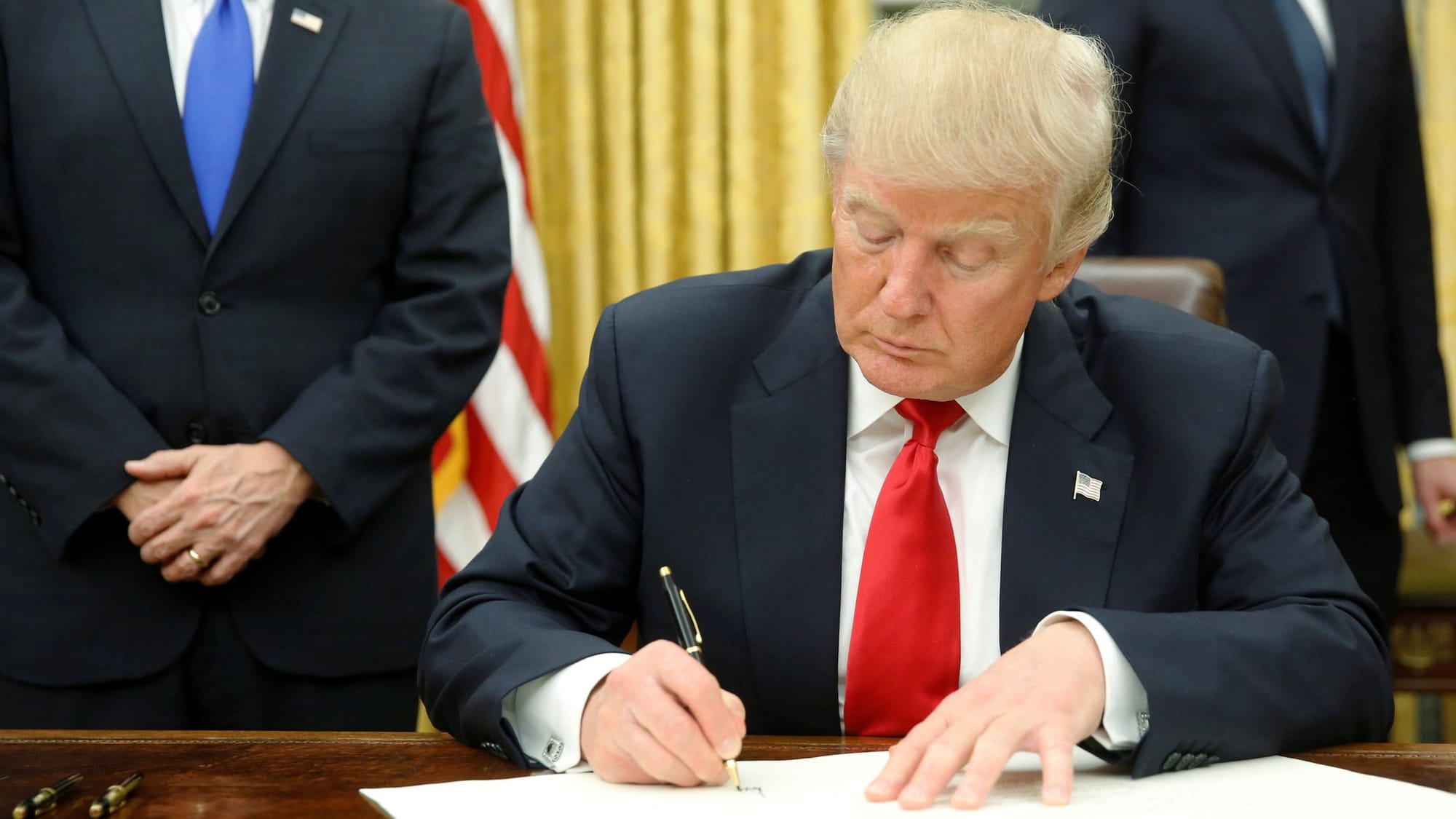Trump Signs Historic Crypto Bill Repealing IRS DeFi Rule

On April 10 2025, President Donald J Trump made history by signing H.J. Res. 25 into law a move that repealed the Internal Revenue Service's DeFi Crypto Broker Rule.
This legislation marks the first cryptocurrency specific bill ever signed by a U.S. president a significant milestone for the digital asset industry. The repealed rule finalized by the IRS in December 2024 aimed to improve tax compliance by requiring brokers including decentralized finance platforms to report the gross proceeds of digital asset sales. However the rule faced strong opposition from the crypto industry which argued that its requirements were impractical and could hinder innovation.
The White House released a statement confirming the signing. The rule in question stemmed from the Biden administration's efforts to crack down on tax evasion in the crypto space an initiative tied to the 2021 Infrastructure Investment and Jobs Act.
Under the IRS framework DeFi platforms were classified as brokers similar to centralized exchanges like Coinbase or Gemini, despite their fundamentally different structure. DeFi exchanges operate without intermediaries allowing users to transact directly on blockchain networks which made compliance with the IRS's reporting requirements nearly impossible.
Stay In The Loop and Never Miss Important Crypto News
Sign up and be the first to know when we publishEconomic Implications and Industry Impact
The repeal of the DeFi Crypto Broker Rule has sparked discussions about its broader implications. The Congressional Budget Office estimated that the decision could result in a revenue loss of approximately $4.5 billion over the decade from 2025 to 2035. This projection stems from concerns that reduced reporting requirements might lead to an increase in tax misreporting a trade-off that has fueled debate among policymakers.
On the other hand the crypto industry views the repeal as a victory for innovation particularly for decentralized finance which has been a growing sector in the digital asset space. By removing what many saw as a barrier to participation the new law could encourage more Americans to engage with cryptocurrency potentially strengthening the U.S.'s position as a leader in digital assets.
The signing of H.J. Res. 25 not only reflects a shift in regulatory approach but also underscores the increasing influence of the crypto industry in shaping policy a trend that may continue to evolve in the coming years.

